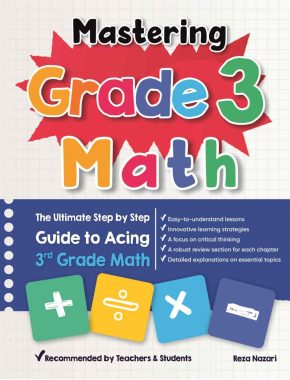15 Geniuses who changed the world of mathematics forever

1. Thales of Miletus
2. Euclid
3. Archimedes
4. Muhammad al-Khwarizmi
Muhammad al-Khwarizmi, born in Khwarizm (modern-day Uzbekistan) in the 8th century, is known as the father of algebra. His greatest work, Al-Jabr wa al-Muqābala (“The Book of Calculation by Completion and Balancing”), introduced systematic methods for solving linear and quadratic equations and coined the term “algebra.”
Beyond algebra, al-Khwarizmi wrote extensively on spherical trigonometry, arithmetic, decimal fractions, and numerical methods, marking the beginning of the Golden Age of Islamic science. He also introduced the Arabic numeral system to mathematics, a revolutionary achievement that led directly to modern arithmetic.
5. Leonardo Fibonacci
The Italian Fibonacci, born in Pisa around 1170, travelled throughout the Mediterranean and learned mathematical systems from diverse cultures. His most significant contribution was introducing the Arabic numeral system to Western Europe in Liber Abaci (1202), revolutionising calculations by replacing Roman numerals with a more efficient decimal system.
Fibonacci also described the sequence now bearing his name—a series where each number is the sum of the two previous (starting 0, 1)—which appears in nature’s growth patterns, such as plant phyllotaxis and shell spirals. His work laid the foundations for number theory and combinatorics.
6. Johannes Kepler
Johannes Kepler was a great German mathematician and astronomer, known for his laws of planetary motion. Kepler’s contributions to physics and astronomy have significantly influenced our understanding of the cosmos and how planets move.
These laws help explain why planets move at different speeds and accelerate or decelerate at certain points in their orbits, and how to mathematically calculate their motion in our solar system. He also made significant advances in optics, which led to the invention of the modern telescope.
7. Gottfried W. Leibniz
Gottfried Wilhelm Leibniz (1646–1716) is best known for inventing differential calculus, which he developed concurrently with Isaac Newton. Despite their priority dispute, Leibniz’s notation for differential equations became the standard for calculus and is still used today.
In addition to calculus, Leibniz made significant contributions to algebra and number theory. He developed methods for solving linear differential equations and introduced binary arithmetic, which underpins modern computing and algebraic systems.
8. Isaac Newton
Isaac Newton was a famous English physicist and mathematician whose Philosophiæ Naturalis Principia Mathematica presented his three laws of motion, still used today to explain the behaviour of moving objects. He invented calculus (“fluxions”) to develop the mathematical basis of classical mechanics and to predict the motion of planets and other bodies.
Newton also made significant contributions to optics—demonstrating that white light consists of a spectrum of colours—and invented the first reflecting telescope, overcoming the limitations of refracting designs.
9. Leonhard Euler
Leonhard Euler (1707–1783) demonstrated exceptional ability from an early age, contributing to calculus, graph theory, mechanics, and optics. He developed the celebrated formula linking e, i, π, 0, and 1, and introduced the function notation f(x) and dy/dx that remain standard today.
In graph theory, Euler defined vertices, edges, and faces and formulated the “Eulerian path” and “Eulerian circuit”, solving the Seven Bridges of Königsberg problem. Despite partial blindness and deafness, he worked tirelessly, producing foundational results across mathematics.
10. Carl Friedrich Gauss
Carl Friedrich Gauss, known as the “Prince of Mathematics,” was born in Braunschweig, Germany, in 1777 and displayed prodigious talent from childhood. At the age of eighteen, he wrote a groundbreaking work on the construction of regular polygons, a fundamental contribution to algebraic geometry. Gauss later proved the fundamental theorem of algebra, establishing that every non-constant polynomial equation has at least one complex root.
He developed the method of least squares, which remains essential in statistics, economics, and modern physics, and discovered the theory of modular arithmetic, a cornerstone of contemporary cryptography. Gauss’s achievements extended into physics and engineering: he is credited with inventing the electric telegraph, making significant advances in magnetism, and devising methods for predicting planetary orbits—work that led directly to the discovery of the asteroid Ceres.
11. Ada Lovelace
Ada Lovelace (1815–1852), daughter of Lord Byron, received advanced training in mathematics and natural science. Collaborating with Charles Babbage on his Analytical Engine, she realised the machine could perform symbolic operations beyond numbers, likening its patterns to a Jacquard loom.
In her famous notes, Lovelace wrote the first algorithm intended for machine processing—calculating Bernoulli numbers—thus laying the conceptual foundation for modern computer programming, despite the engine never being built.
12. David Hilbert
David Hilbert was one of the towering mathematicians of the 20th century, renowned for his vast contributions to geometric algebra, applied mathematics, and number theory. His work on logic—particularly the development of first-order, or predicate, calculus—made it possible to formalise mathematical proofs and provided a rigorous foundation for the entire discipline.
Hilbert’s formalism extended into number theory with his theory of Hilbert class fields, deepening our understanding of the relationship between fields of algebraic numbers and their Galois groups. In geometry, his axioms formed the basis of modern geometric algebra, and his famous list of 23 unsolved problems guided much of the mathematical research that followed. Although some of his ideas sparked intense debate, his influence on the shape of modern mathematics is undeniable.
13. Emmy Noether
Emmy Noether developed a number of revolutionary mathematical concepts that challenged existing theories about algebraic equations and their structures. Her most significant contribution, Noether’s theorem, established a profound connection between symmetry in physical systems and the fundamental laws of nature, becoming a cornerstone of modern theoretical physics.
Beyond physics, Noether transformed abstract algebra through her work in ring theory and commutative algebra. Despite facing severe gender discrimination and being forced to work as an unpaid lecturer for many years, she persevered and ultimately secured a paid academic position at the University of Göttingen. Her pioneering ideas continue to underpin contemporary research across algebra, topology, and mathematical physics.
14. Kurt Gödel
Kurt Gödel is celebrated as one of history’s most brilliant logicians, whose work has had a profound impact on mathematics and beyond. His incompleteness theorems demonstrated the inherent limitations of formal axiomatic systems, showing that any system powerful enough to express basic arithmetic truths will necessarily contain true statements that cannot be proved within the system itself.
Gödel’s results challenged the prevailing hope for a complete and consistent foundation for mathematics, forcing logicians to re-examine the very nature of mathematical truth. His insights also influenced philosophy and computer science, playing a decisive role in the development of artificial intelligence and the study of computational complexity.
15. Benoît Mandelbrot
Benoît Mandelbrot, a French mathematician of Polish origin, first introduced the term “fractal” to describe objects exhibiting self-similarity at different scales. He pioneered a new branch of geometry—fractal geometry—closely linked to chaos theory and with applications ranging from art to finance.
One of Mandelbrot’s most notable discoveries is the Mandelbrot set, generated by a simple iterative formula yet producing infinitely detailed, complex patterns. His work captured the imagination of both mathematicians and creative professionals. He also developed a mathematical model of turbulence used in hydrodynamics and applied fractal concepts to image compression, revolutionising the field of digital imaging.
Frequently Asked Questions
How do you calculate the area of a circle?
To calculate the area of a circle, you need to use the formula \(A = \pi r^2\), where \(A\) represents the area, and \(r\) is the radius of the circle. The radius is the distance from the center of the circle to any point on its edge. By plugging the value of the radius into the formula, you can find the area. This mathematical concept is a fundamental geometric principle that has been developed and refined by some of the greatest mathematical minds throughout history, linking directly to the advancements discussed in the history of mathematics.
For parents who are interested in nurturing a young mathematician, consider exploring more foundational concepts with resources like this collection of the Top 10 Grade 3 Math Books Inspiring Young Mathematicians To Explore. These books can help young learners grasp core math principles, including geometry and algebra, which are crucial for understanding more complex mathematical theories.
How do you find the area of a triangle?
To find the area of a triangle, you use the formula: Area = 1/2 × base × height. Here, the “base” refers to any side of the triangle, and the “height” is the perpendicular distance from the chosen base to the opposite vertex. This method, rooted in basic geometry, echoes the kind of foundational math that historical figures like Euclid developed, revolutionizing our understanding of shapes and spaces. For in-depth examples and further explanations on calculating areas of different shapes, you might find this guide on geometry basics very helpful.
How do you calculate the area and perimeter of different shapes?
Calculating the area and perimeter of different shapes is a fundamental skill in mathematics, tracing back to the contributions of ancient and modern mathematicians mentioned in the article. For simple shapes like rectangles, the area is calculated by multiplying the length by the width, and the perimeter is found by adding all the sides (length + length + width + width). For more complex shapes, such as circles, the area is π times the radius squared (πr²), and the perimeter, or circumference, is 2π times the radius (2πr). To explore more on these concepts and see examples, check out this guide on how to calculate area and perimeter for various shapes.
Related to This Article
More math articles
- How to Identify the Function from the Graph
- Types of Angles (Acute, Right, Obtuse) for 4th Grade
- The Ultimate 7th Grade DCAS Math Course (+FREE Worksheets)
- 8th Grade Georgia Milestones Assessment System Math Worksheets: FREE & Printable
- How to Prepare for the OAR Math Test?
- How to Identify Characteristics of Quadratic Functions: Equations
- Pictographs and Tally Charts
- How to Multiply and Divide Rational Numbers
- 3rd Grade TNReady Math Worksheets: FREE & Printable
- How to Write Linear Functions from Tables





























What people say about "15 Geniuses who changed the world of mathematics forever - Effortless Math: We Help Students Learn to LOVE Mathematics"?
No one replied yet.